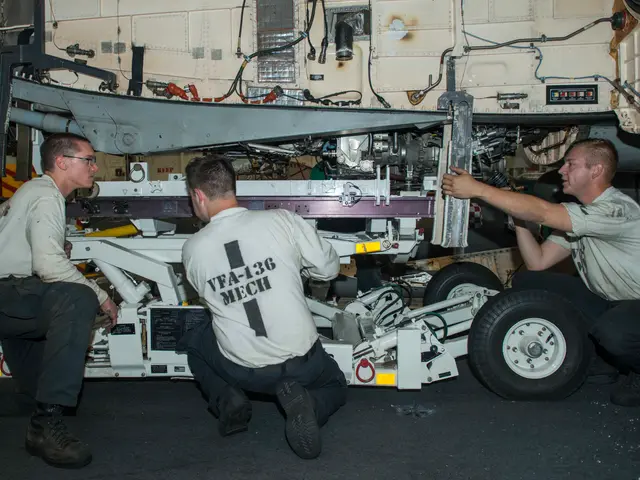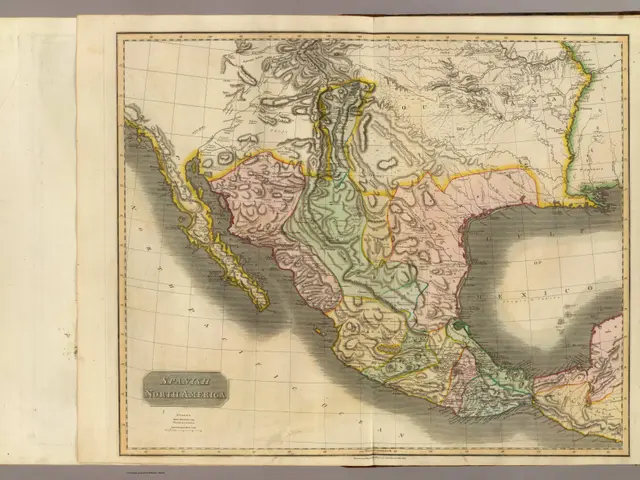Climate goals of EU leaders are under pressure to be finalized before the COP meeting approaches
The European Union (EU) is facing a critical moment in its pathway towards climate neutrality by 2050, as diplomatic tensions threaten to derail ambitious climate goals. The EU Environment Ministers are set to meet in Brussels on September 18 to discuss the EU's strategy, originally scheduled to adopt formal positions on the 2035 and 2040 climate targets.
Steffen Menzel, Programme Lead at our organisation in Berlin, expressed disappointment over the delays and lack of clarity surrounding the EU's 2035 NDC. Menzel emphasised that as a major emitter, the EU must honour its obligations under the Paris Agreement. He also highlighted the International Court of Justice's Advisory Opinion, which confirms that climate ambition is not optional.
The proposed statement would include a range of 66.3% to 72.5% for EU emissions cuts by 2035. However, resistance from several Member States, including Hungary, Italy, the Czech Republic, and France, has made it uncertain whether the EU can secure the necessary ambition ahead of COP30. France, in particular, demands industrial support, while Germany plays an ambiguous role by delaying decisions, pushing the vote from the environment ministers to the EU summit, where unanimity is required, and blockers have leverage.
In an effort to avoid arriving at the UN General Assembly empty-handed, the Danish Presidency of the Council of the EU will seek to broker an agreement among Member States on a 'statement of intent'. This statement would leave the door open to endorsing a science-based 90% emissions reduction target by 2040 and an aligned 2035 interim goal of 72.5%.
Marc Weissgerber, Executive Director at our organisation in Berlin, called for Germany to demonstrate leadership at this critical diplomatic juncture for the EU. Weissgerber stressed that a proactive role is essential for meeting Germany's own national climate objectives, upholding political credibility, and securing the international competitiveness of the European and German economy. He made these comments in German: "Deutschland muss in diesem entscheidenden diplomatischen Moment Führungsstärke zeigen. Eine aktive Rolle ist zugleich zentral für das Erreichen der eigenen Klimaziele, für die politische Glaubwürdigkeit, und für die internationale Wettbewerbsfähigkeit der deutschen und europäischen Wirtschaft."
Elisa Giannelli, our organisation's Programme Lead for EU politics, and Manon Dufour, our Executive Director in Brussels, are available for comment regarding the EU's 2040 target. Steffen Menzel, our Programme Lead for NDCs and EU foreign policy, is also available for comment. The stakes are high for the EU, as a formal agreement on the 90% by 2040 is essential to provide certainty for investors, bolster energy security, and maintain economic competitiveness. The UN Secretary General special leaders' event alongside next week's opening of the UN General Assembly has emerged as a major moment for countries to present their 2035 NDCs. The EU's response will be closely watched by the international community.
Read also:
- Amidst India's escalating climate crisis, transgender individuals continue to persevere
- Contentious Discussion Surrounding the Movie Release of "Planet of the Humans"
- Germany's three-month tenure under Merz's administration feels significantly extended
- Norway set to allocate proceeds from sales of tickets for a soccer match against Israel to Médecins Sans Frontières (MSF)








